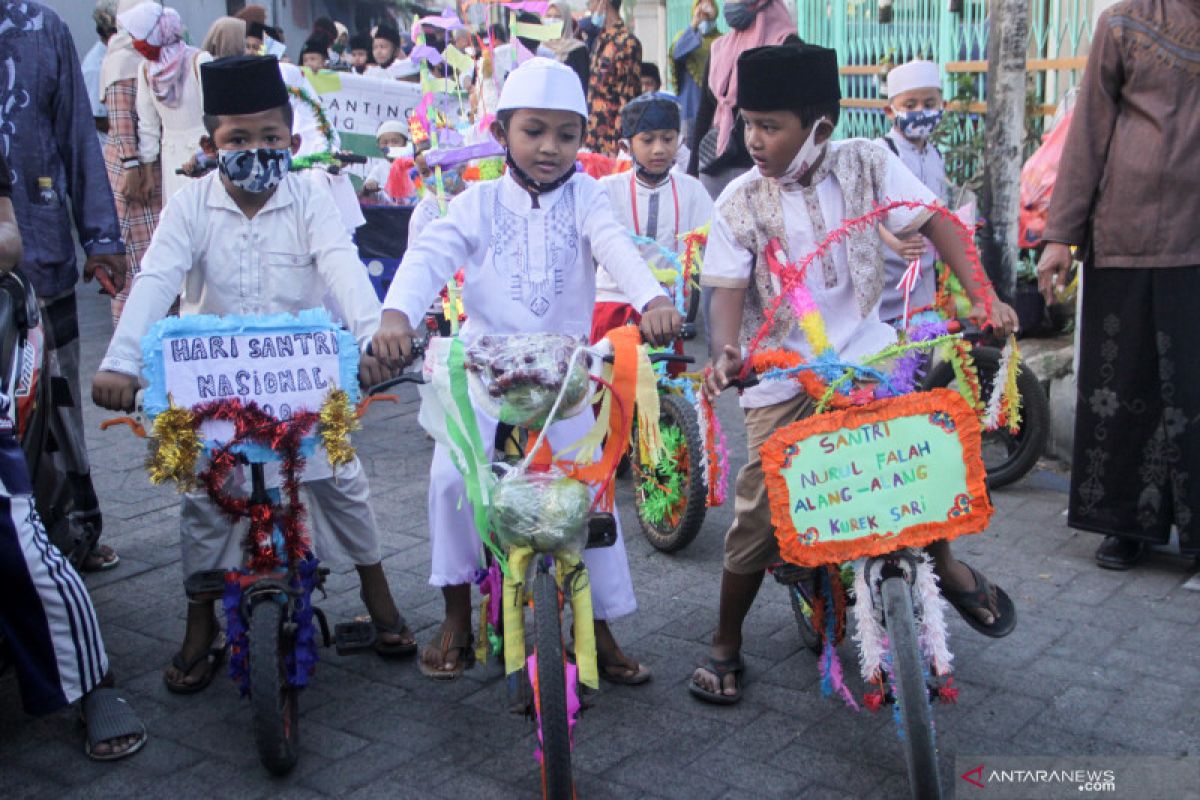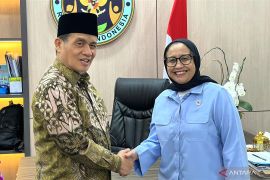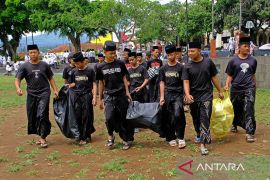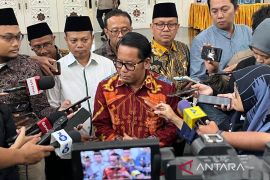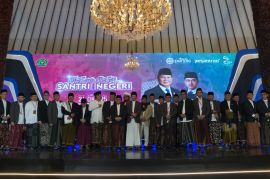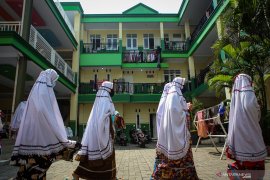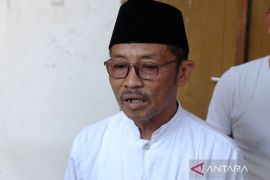We are optimistic that the students would be able to use it to finance productive businesses by accessing KUR financing at the nearest branch offices, including those serving shariaJakarta (ANTARA) - Islamic boarding schools, or pesantren, have not only managed to survive in Indonesia since colonial times, but have also assumed a strategic role in national development and economic empowerment, particularly at the grassroots level.
Indonesia has 28,961 pesantren catering to at least 18.5 million students, or santri, and employing about 1.5 million teachers, who are helping shape the future human resources of the nation.
On the occasion of National Santri Day on October 22, 2020, Vice President Ma’ruf Amin urged santris to play an active role in developing the economy.
He said he hoped that pesantren would not only become hubs for producing Muslim clerics, but also centers for economic empowerment.
Amin lauded several community economic programs initiated in cooperation with pesantren, such as the establishment of convenience stores, cooperatives for santri, and the development of a business incubation center for Islamic boarding school students and a mobile apps service.
“More collaborations must be done between the Islamic boarding school students and industry players to bring prosperity to the people,” he remarked.
Pesantren, as the center of the preaching of Islam, must be made relevant and match the current pace of progress by using digital technology to reach a wider audience, Amin advised.
The government has committed to funding 209,449 Islamic boarding schools and institutions by allocating Rp2.6 trillion ($1.7 billion) in 34 provinces for the 2020-2024 period. The funds are meant to support online learning, operational costs, and healthcare programs for COVID-19 handling in Islamic boarding schools, among other things.
Meanwhile, Finance Minister Sri Mulyani Indrawati recently confirmed the government's allocation of Rp2.6 trillion for pesantren and religious education amid the COVID-19 pandemic through the pesantren economic recovery program.
Indrawati said Rp2.38 trillion of the assistance is meant for facilitating educational operations in institutions ranging from Islamic boarding schools and Madrasah Diniyah Takmiliyah to Al-Quran educational institutions (LPA).
Meanwhile, assistance of Rp211.7 billion is intended for online learning assistance for pesantren for a period of three months.
The minister elaborated that each pesantren will receive assistance, based on its size: around 14,900 small-sized pesantren will each be offered Rp25 million; about four thousand medium-sized pesantren will get Rp40 million in aid each; and 2,200 large-sized pesantren will receive Rp50 million each.
Furthermore, education operational assistance of Rp10 million has been allocated for 62 thousand Madrasah Diniyah each and Rp10 million for each Quran educational institution, numbering some 112 thousand.
Meanwhile, the government is offering incentives to teachers, clerics, and caretakers of Islamic boarding schools through social and development assistance or improvements to infrastructure.
Improvements to facilities and infrastructure include provision of ablution places, sinks, and facilities for washing hands for 100 Islamic boarding schools in 10 provinces in Indonesia.
Furthermore, the government is continuing to help provide Islamic school students access to finance in the context of conducting productive businesses, specifically through the People's Business Credit (KUR) facility.
"We are optimistic that the students would be able to use it to finance productive businesses by accessing KUR financing at the nearest branch offices, including those serving sharia," Indrawati added.
Earlier, Governor of Bank Indonesia, Perry Warjiyo, had announced three economic empowerment programs targeting pesantren as the basis for national economic development.
The first scheme covers development of potential business units that facilitate and utilize cooperation between pesantren. The second programs aims to promote business cooperation among pesantren through virtual markets and business matching. The third scheme targets to develop pesantren holdings and prepare financial reporting standards under the umbrella of SANTRI (Indonesia Pesantren Accounting System), which may be implemented by each pesantren business unit.
Warjiyo outlined the programs while speaking at a discussion entitled ‘Fastabiqul Khairat through Islamic Boarding Schools as part of the Halal Value Chain’, which was held as part of the Indonesia Shari’a Economic Festival (ISEF) in December, 2018.
The three programs represent the main pillars of the overarching strategy presented in the National Islamic Economic and Financial Development Blueprint, namely to empower the Islamic economy through the development of a halal value chain ecosystem.
Under the proposed ecosystem, Islamic businesses will be developed through the empowerment of large companies, micro, small, and medium enterprises (MSME), as well as pesantren, including through institutional aspects and supporting infrastructure, targeting halal foods, fashion and tourism as well as virtual markets.
These programs are in line with the government's ambition to transform Indonesia into a global halal product hub by 2024.
The global halal market has reached US$1,294.5 million in 2020 and is expected to touch US$1,911.3 million by the end of 2026, reflecting a CAGR (compound annual growth rate) of 5.7 percent for the 2021-2026 period, according to the Global ‘Halal Market’ 2020 Research Report, released last August.
The global halal food market was valued at US$1,140 million in 2018 and is estimated to reach US$1,590 million by the end of 2025, showing CAGR of 4.3 percent in the 2019-2025 period.
Brazil, Australia, Japan, North America, and China are among the main halal product producers in the world. But, Indonesia, the fourth most populous nation in the world with nearly 270 million people and some 90 percent are Muslims, is yet to exploit the potential of the halal business. (INE)
Related news: Pesantren should be open to partnering for economic development: Amin
Related news: Pesantren playing significant role in national development: Mulyani
Related news: Younger generation, pesantren graduates must have skills: Jokowi
Editor: Gusti Nur Cahya Aryani
Copyright © ANTARA 2020
